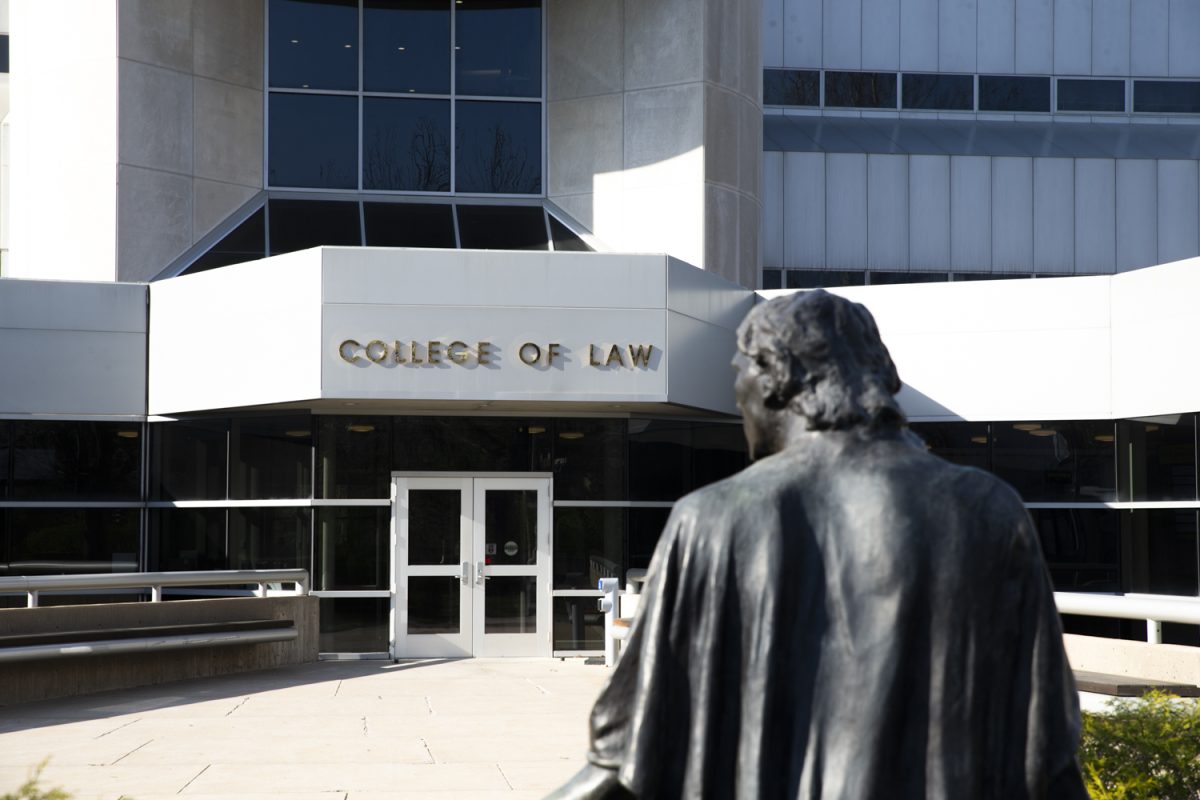By Madeleine Neal
For one expert, the issue of college affordability stretches to more than just student debt; it also goes back to the lack of financial support.
Professor Sara Goldrick-Rab of Temple University discussed the “crisis” of student-loan debt in a Monday evening lecture at the Iowa City Public Library, 123 S. Linn St.
Goldrick-Rab, who teaches higher education policy and sociology at Temple University, is the author of Paying the Price: College Costs, Financial Aid, and the Betrayal of the American Dream.
The book is based on a 2008 study of 3,000 students who attended public universities in Wisconsin using federal financial aid, including Pell Grants.
Prior to conducting the study, Goldrick-Rab said, she wanted to focus on “the people who walk the walk and endure the struggle on a daily basis.”
Her study found that 74 percent of ninth-graders from low-income families expected to attend college, but just 51 percent of those who graduate from high school will make it to college.
The United States spends around $200 billion a year on financial aid, but only 2 in 5 will earn a degree of any kind within six years, she said in the lecture.
The state of Wisconsin has an average student loan debt of about $29,460 per student, according to the Institute for College and Success. The state of Iowa has about a $29,547 loan debt per student.
Sara Even, an associate director of UI Student Financial Aid, said many of Iowa’s funds are limited, so it is important that students apply for financial aid early to be considered for grants and scholarships.
She said Financial Aid’s policy is to award grants and scholarships before student loans.
The UI Financial Literacy Service, Even said, which is housed in the Financial Aid Office, has met with more than 2,000 students during this academic year.
“Student-loan debt is often the reason students request meetings,” wrote Even in an email to The Daily Iowan. “So the specialists create individualized spreadsheets for students detailing their projected debt and monthly payments.”
She noted the Financial Aid Office has eight counselors who work with students. The counselors, she said, help students on a “walk-in” basis.
Office counselors “especially” work with helping first-year students and families understand their financial-aid awards.
“Many funds are limited, so it is important that students apply for financial aid early in order to be considered for the maximum in grants and scholarships,” she said.
Work-study and part-time employment are offered and encouraged by the Financial Aid Office.
The average student-loan debt of those who take out loans has decreased from $27,415 in 14-15 to $26,557 in 15-16, Even wrote in the email.
UI sophomore Emma Baumgarten, from Denver, said she is able to attend the UI at a lower price than most out-of-state students.
Baumgarten received two scholarships through the university.
“I got really lucky,” she said. “I loved that I got to [go to] a football game Saturday, then see my favorite author read on Sunday.”
She received two additional scholarships separate from the UI, which reduced her tuition to the equivalent of in-state tuition.
Goldrick-Rab suggests five steps to fixing the “crisis on college affordability.”
She advises rethinking how students are supported, how living costs of attending college are addressed, how we can help students keep their financial aid, how university communications can be approved to let students know “they are part of the family,” and how to “make work pay” by fixing work study, raising the minimum wage, and working with local employers.
“We must do better,” she said. “The financial-aid system is so convoluted.”







